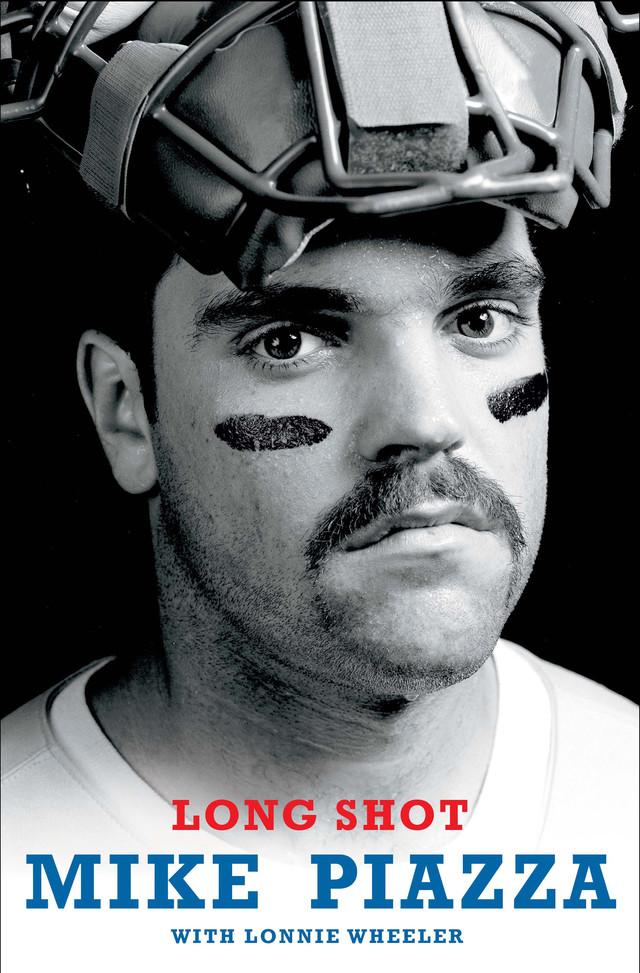Mike Piazza is one of, if not the most, popular New York Met to ever put on a uniform. When Piazza came to the Mets in 1998 he took the team from being pretenders to contenders. He instantly gave them credibility and eventually took the them to the World Series.
Piazza retired in 2008 and became eligible for the National Baseball Hall of Fame this past January. No player on the ballot received enough votes to be inducted, partly due to the suspicion that surrounds those who played during the “steroid era” of the 1990’s. This was the first time since 1996 that no baseball player was voted in. That included names like Roger Clemens, Barry Bonds, Craig Biggio, and Mike Piazza.
Last Tuesday, Piazza released his long awaited memoir “Long Shot.” The title symbolized Piazza’s career. Drafted in the 1988 amateur draft as a “courtesy pick” in the 62nd round, Piazza rose to the top by hitting Long Shots.
In his book, Piazza addresses all of the black clouds that shadowed his career, from altercations with Roger Clemens, to steroid use and the rumors that he was gay. Piazza also addresses some subjects that fans wouldn’t notice like his relationships with the media and Latin American players.
The book starts out by introducing the relationship Piazza had with his father, Vince, who was a big advocate for sending his son to the Major Leagues and how much an influence that Vince had on his son. Vince also had a good relationship with Dodgers manager Tommy Lasorda, who assured the Piazzas that the Dodgers would eventually draft Piazza with their last pick in the 1988 draft.
Piazza, originally a first baseman, documents the struggles he endured while going through the Dodgers minor league system while dealing with the notion that he was only in the system because of Lasorda. Eventually he worked his way behind the plate and found a home behind the back-stop.
Piazza also talks about the friendships he made while with the Dodgers especially Eric Karros whom he roomed with. While there was a lot of good with Piazza, he had troubles with Pedro and Ramon Martinez as well as other Latin American players.
“I’m sorry: but when they arrive on U.S. soil, the onus isn’t on American players to learn English,” he said in the book.
Piazza also denies steroid use and claims he took Vioxx and Androstenedione, also known as “Andro,” before they were ultimately deemed illegal by Major League Baseball.
“I was into power, not prison,” he said.
Piazza talks extensively about his gym-rat personality and how he had a spare key to a local gym in Vero Beach just to work out after hours.
In terms of Roger Clemens, he tackles the subject by saying that he eventually should’ve gone after him but wishes the circumstances were different. He claims the 2000 World Series was “His World Series.” But his World Series will always be remembered for the incident. He also admits that he took karate lessons after he was beaned by Clemens earlier in the summer before the World Series and was ready for a retaliation fight.
Piazza also addressed the rumors that he and weather man Sam Champion were in a relationship. Piazza tried to keep his relationships under wraps and claims he had a new girl friend every spring.
And last but not least, Piazza dabbles about his signature moment, the home run that brought New York City closer back to normalcy, his game-winning home run against the Braves on September 21st, 2001.
Overall the book was a good read, Piazza answers every question that fans were wondering about the slugger most of his career and also weighs in on his future stating that if he were to eventually get into Cooperstown it would be as a Met.
“Seaver could use some company,” he said.
He also claims that since the players don’t have a say as to what cap they’ll wear on their Hall of Fame cap, he’s rather have no emblem on it than just the LA logo that the Dodgers symbolize.
For Mets fans who enjoyed watching Piazza hit the long balls, “Long Shot” is a must read.








